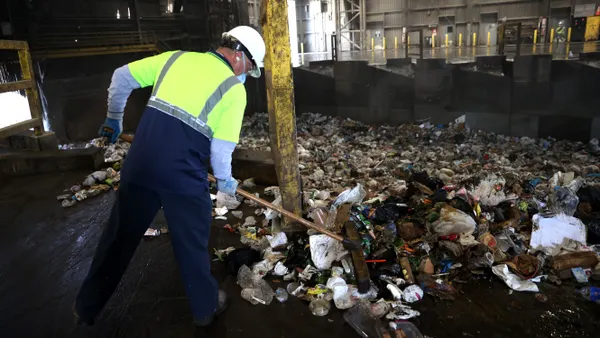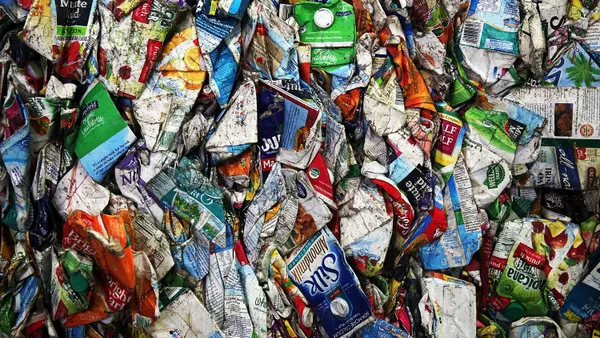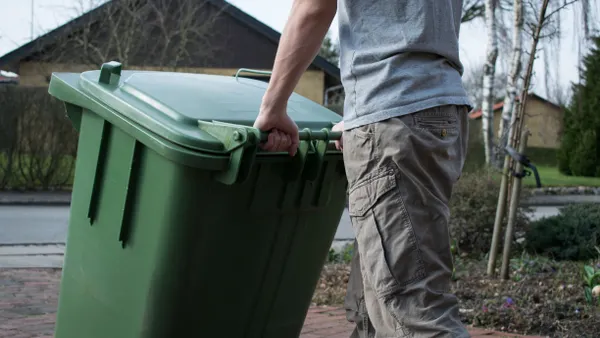Dive Brief:
- The Repair Association, a nonprofit that advocates for "right to repair" legislation around the country, is mounting a lobbying push in 16 states that are considering such bills, according to Executive Director Gay Gordon-Byrne.
- The push comes as many states around the country begin their legislative sessions. Gordon-Bryne said that with many issues, legislation needs a moment or event to get action from state lawmakers. Apple telling consumers that older batteries may make devices perform slower could be the impetus for state-level action on the right to repair, Gordon-Byrne said. "You need a push. And Apple just gave us a hell of a push."
- Urban Mining CEO Steven Kaufman called the right to repair "imperative." In an email, Kaufman said, "As devices become smaller and the rate of new technology increases, the need will only become more acute. The alternative is a shortened lifespan for equipment and greatly increased cost and time for consumers to have their equipment refurbished and repaired."
Dive Insight:
Environmental advocacy group Greenpeace has categorized just a handful of electronics manufacturers as some of the biggest producers of e-waste — and some of those companies also received low grades in terms of repairs and device recyclability.
Unlike many state-level issues, such as marijuana legalization or the property tax levels, for example, the "right to repair" can cross state lines, so to speak. To promote the right to repair to the national level, Gordon-Bryne said, one state legislature has to act first. "Information is digital and flows without impediment across state borders, " She said. "Really, it will functionally take one state."
Industry groups including the Institute of Scrap Recycling Industries (ISRI) have voiced support for the right to repair, too. ISRI said reuse and repair provide "excellent environmental and economic benefit" in late 2016. The organization said that, as part of the efforts to realize these potential benefits, consumers need access to alternatives to new parts, and recyclers need access to manuals, parts and information to repair devices and automotives.
Advocates of the right to repair — mandating that electronics makers provide spare parts and repair manuals — say it will help cut down on the growing e-waste problem. In 2017, the world generated 44.7 million metric tons of e-waste. The United Nations projects that number will hit 50 million in 2018. Leaders in the space, like Kaufman, see significant economic potential in the e-waste sector. Others see the movement toward the right to repair as inevitable, especially as consumers become more aware of what company policies and practices.










